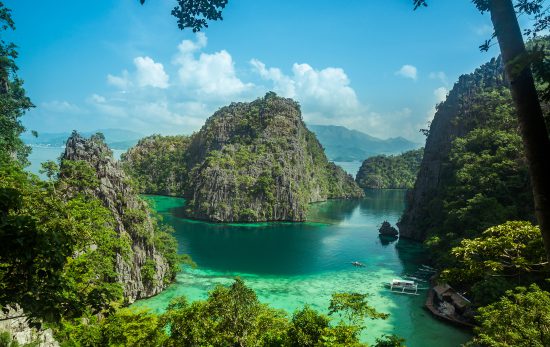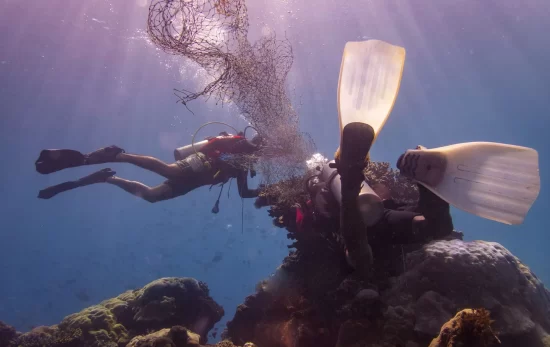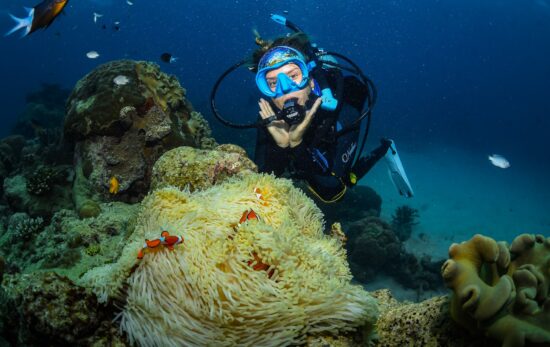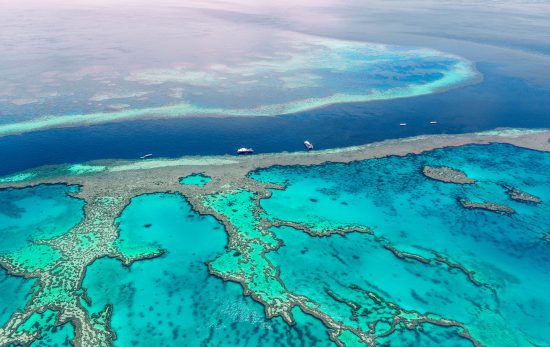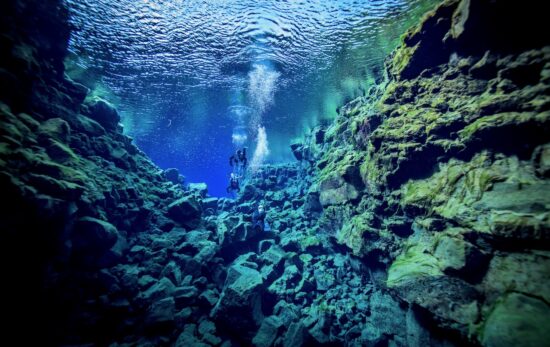Above the surface, Australia and New Zealand offer the chance for some truly memorable encounters with wildlife, from koalas to kangaroos – and it’s just the same in the water. For starters, arguably the most dreamed about dive destination worldwide is in Australia – the Great Barrier Reef. However, beyond this, both Australia and New Zealand are home to numerous additional dive destinations worthy of your vacation time.
In Australia, you’ll find one of the whale shark capitals of the world (Ningaloo Reef), one of the best wreck dives in the world (the SS Yongala) and memorable shore dives featuring truly unique marine life, like the leafy seadragon. New Zealand, meanwhile, offers breathtaking diving and landscapes in Milford Sound as well as a dive destination Jacques Cousteau proclaimed as one of the world’s very best (Poor Knights Islands). Ready to get started?
Here are the best diving destinations in Australia and New Zealand.
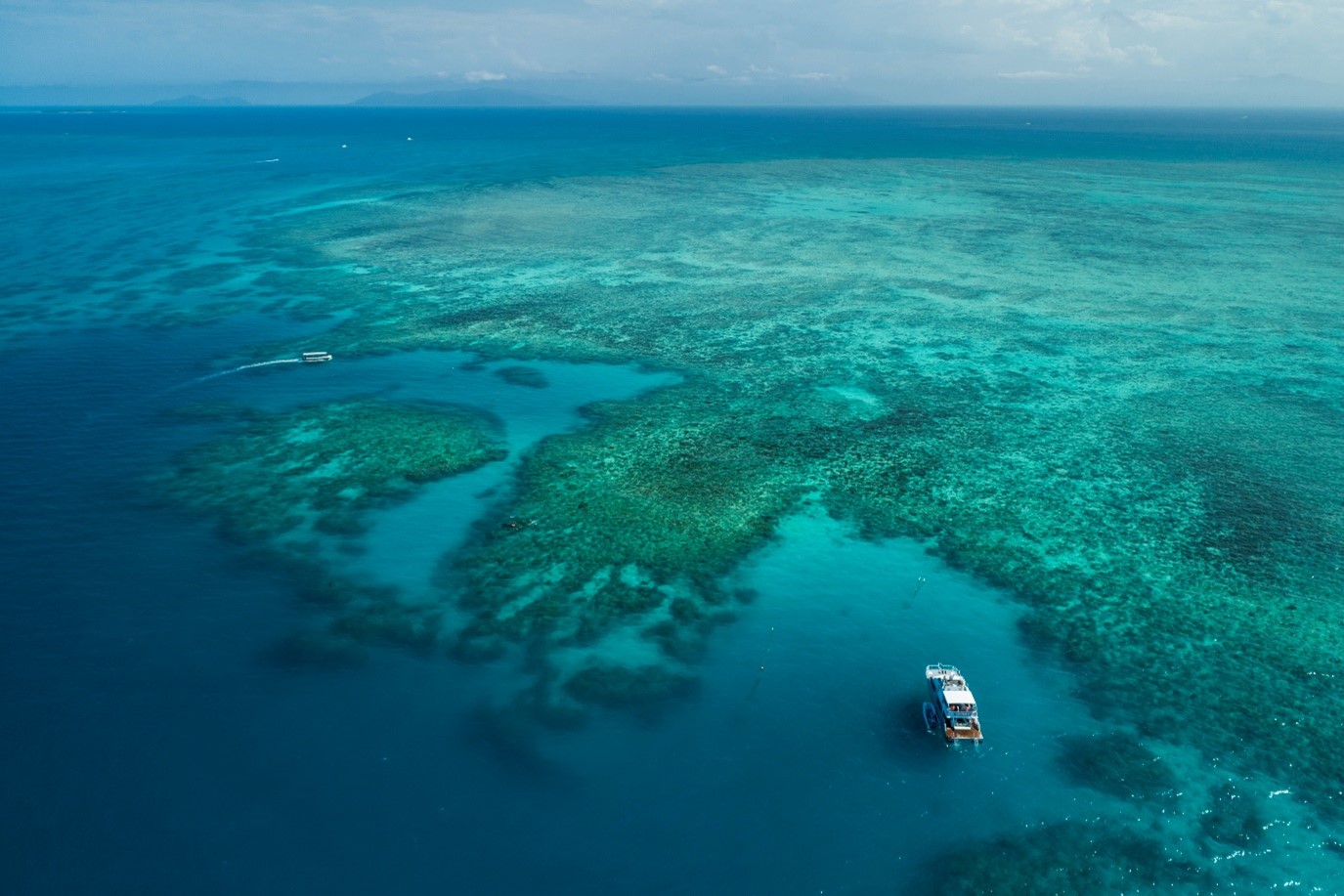
1. The Great Barrier Reef (Including the Whitsunday Islands – AUS)
As the largest coral reef system in the world, it’s not surprising that Australia’s Great Barrier Reef is home to some of the best scuba diving in the world. More than 1,500 species of fish, including 134 species of sharks and rays, 30+ species of marine mammal and six out of the seven turtle species can be found in this underwater paradise. Additionally, this UNESCO World Heritage Site sits inside the Great Barrier Reef Coast Marine Park, meaning this world-class diving habitat is protected and managed for the future. Cairns and Port Douglas are great jumping off points for diving the Great Barrier Reef.
The nearby Whitsunday Islands, which are also inside the Great Barrier Reef Coast Marine Park, are also worth checking out. Expect pristine sandy beaches, vibrant coral reefs and plankton-rich waters that attract pelagic marine life. Don’t miss Airlie Beach, Hamilton Island and Hook Island.
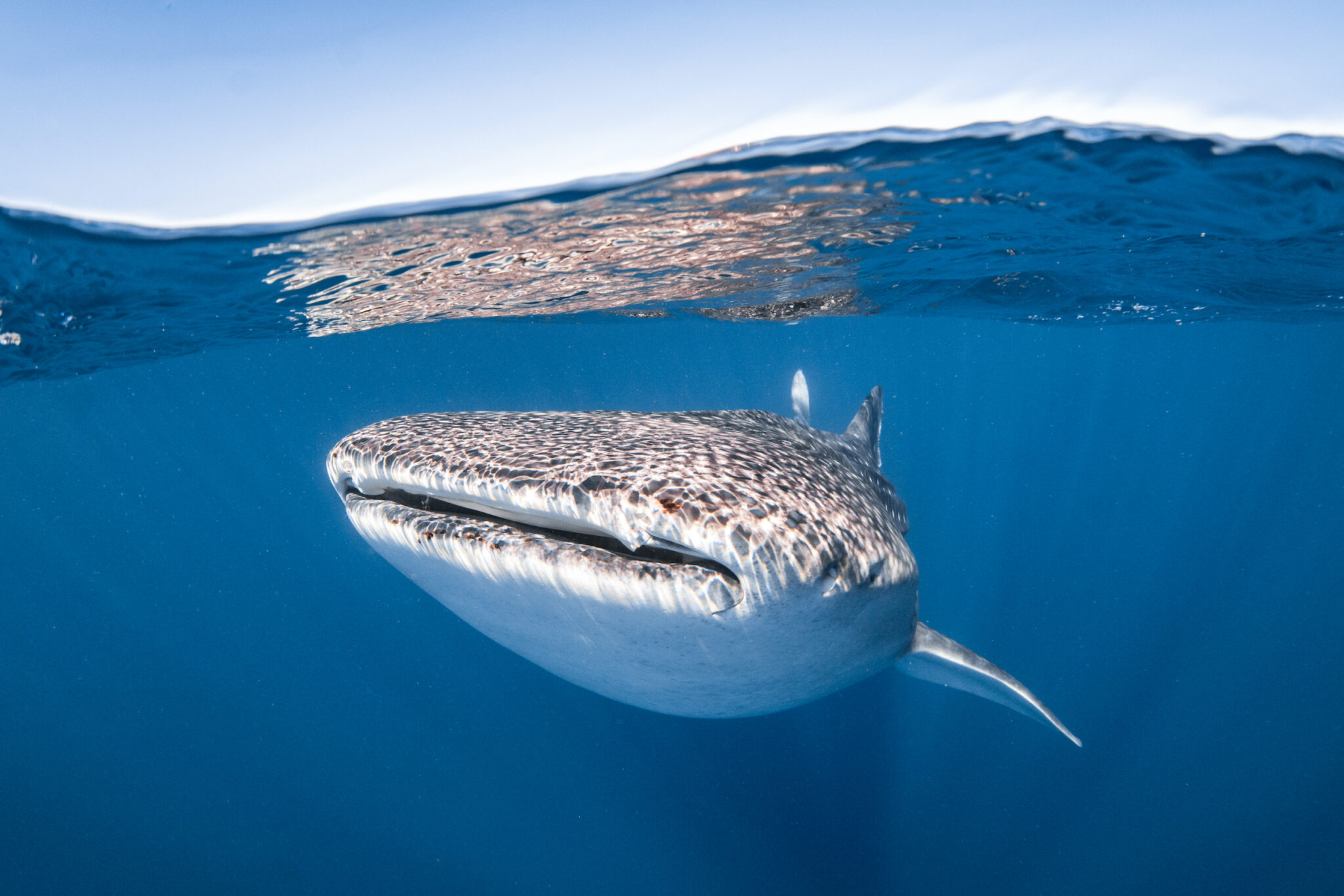
2. Ningaloo Reef (AUS)
Nigaloo is most famous for its seasonal whale shark population. Each year, between the months of March and August, visitors have the chance to snorkel and freedive with the world’s largest fish. However, that’s not all this UNESCO World Heritage Marine Park has to offer. Manta rays, dolphins, humpback whales (June to November) and even dugongs may appear beneath the water’s surface. Furthermore, Ningaloo’s pristine beaches are important nesting grounds for several marine turtle species.
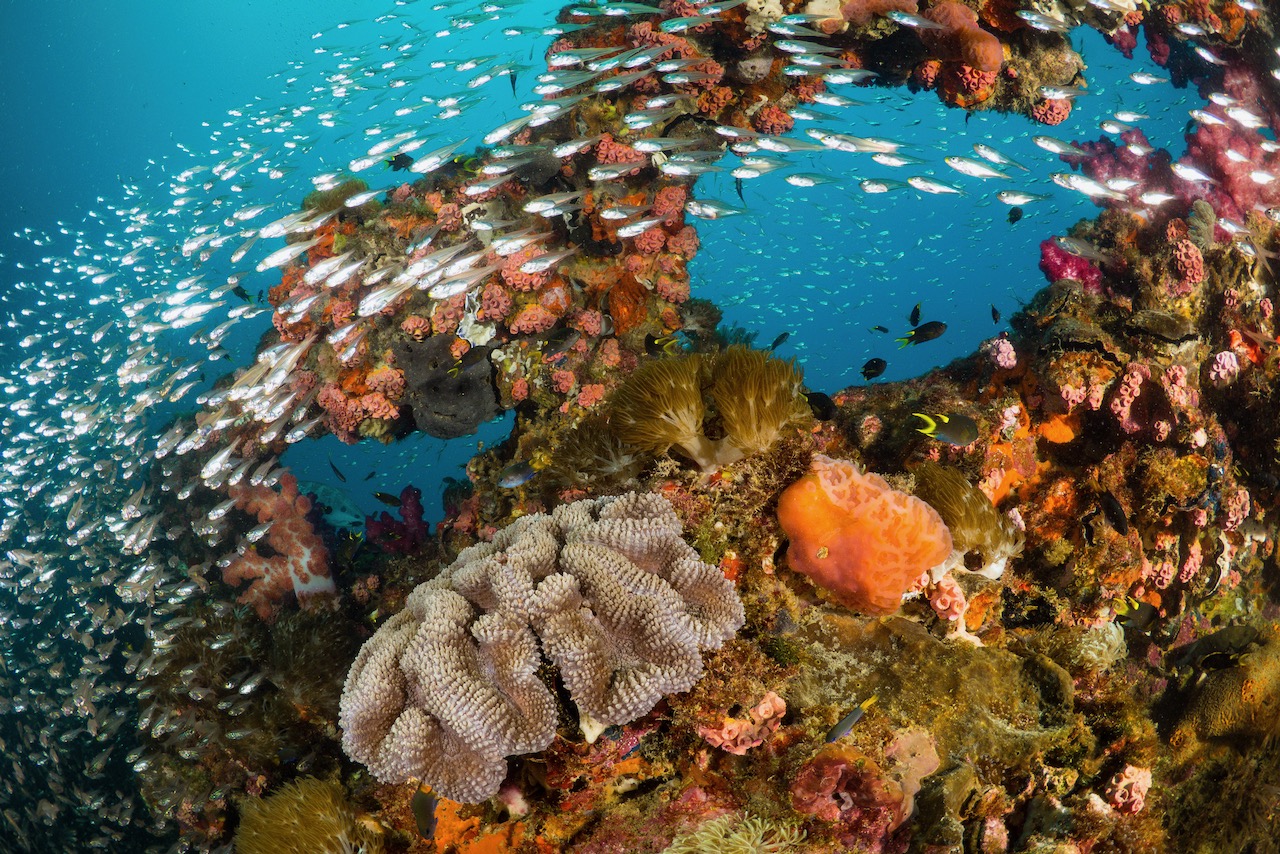
3. Townsville (SS Yongala & Museum of Underwater Art – AUS)
In addition to some fantastic reefs and good visibility, the dive sites near Townsville in northeastern Queensland include two noteworthy candidates for the best diving destinations in Australia. The wreck of the SS Yongala is located approximately 48 nautical miles (89 km) from the city and regularly features in discussions about the best wreck dives in the world. Head northwest from the Yongala, and you’ll find the Museum of Underwater Art (MOUA). This artificial underwate rmuseum features dozens of installations to explore, including the Guiness World Record-holding Coral Greenhouse and several photo-worthy statues.
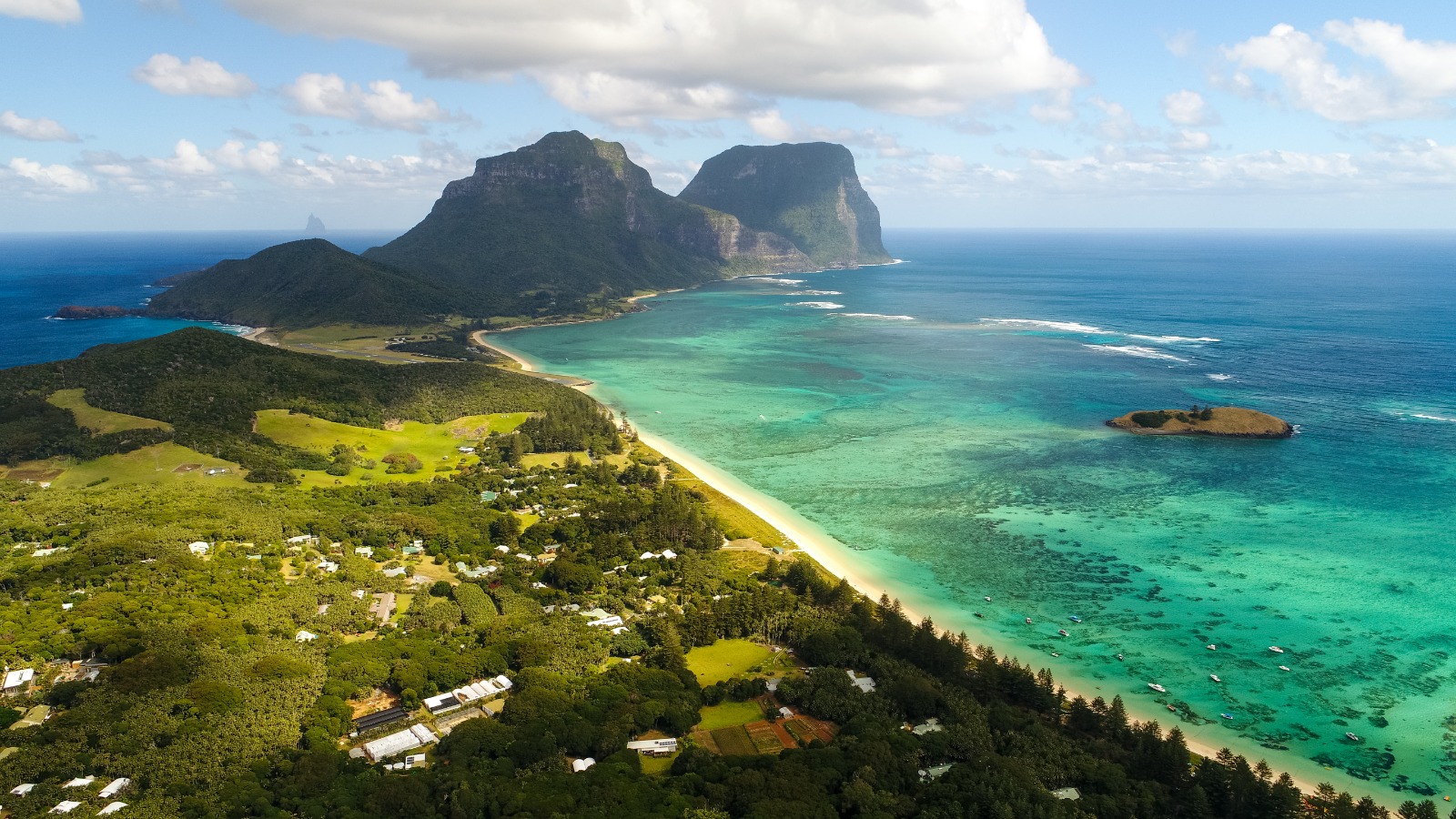
4. Lord Howe Island (AUS)
Fly out to the remote Lord Howe Island in New South Wales, and you can expect pristine beaches, lush forests and dramatic landscapes. Things remain as magical when you step away from this crescent-shaped island and into any one of the hundreds of dive sites in the surrounding waters. From the island’s coral-filled lagoon, which is an ideal for all levels of divers, to the prehistoric and unique topography of the Relict Reef, diving in Lord Howe Island is truly unique.
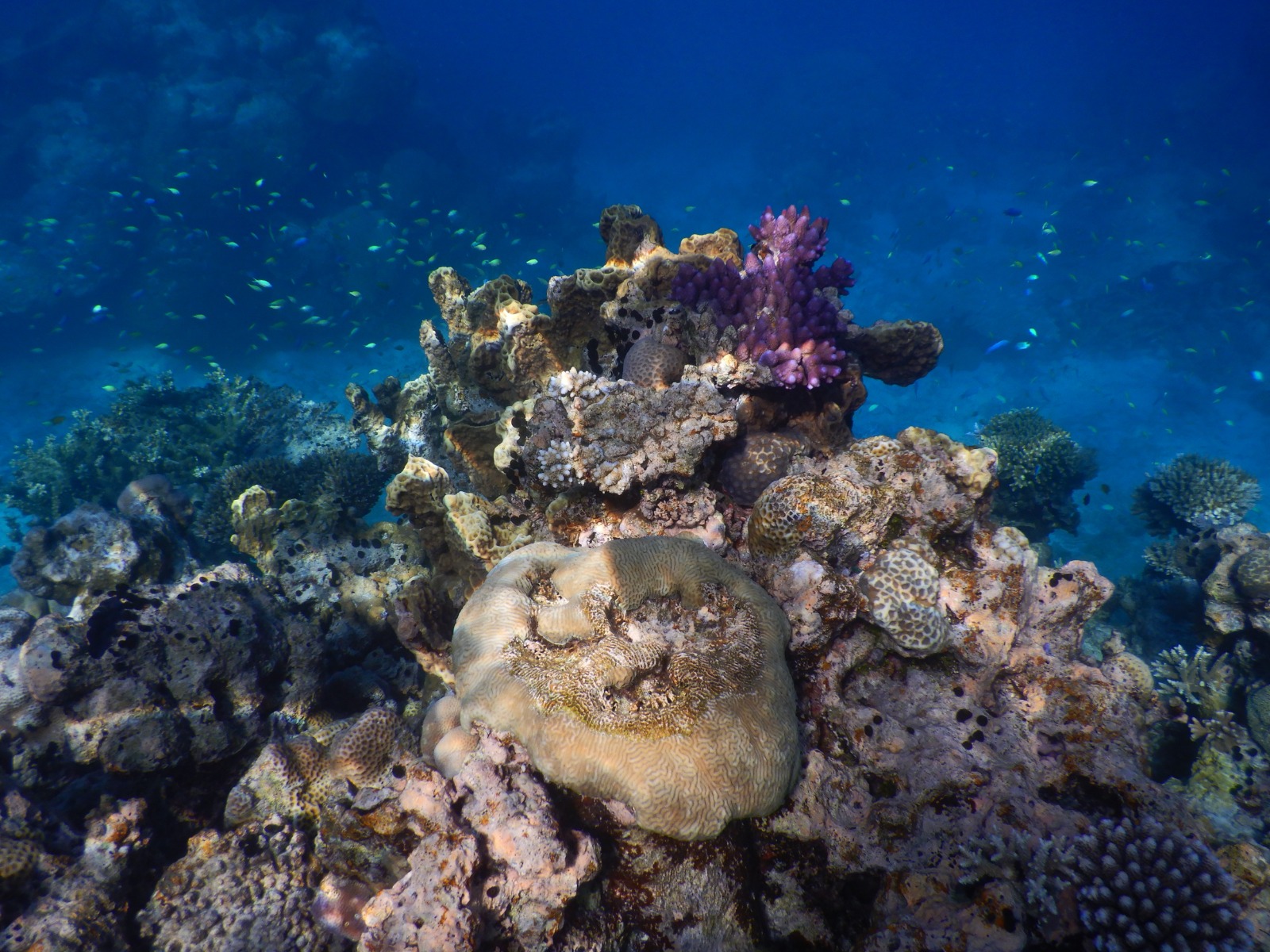
5. Rowley Shoals (AUS)
Rowley Shoals in Western Australia is another of Australia’s remote but worth-the-effort diving destinations. Sitting 186 miles (300 kilometers) west of Broome, the Rowley Shoals Marine Park is at the edge of the continental shelf and is made up of three coral atolls, numerous coral gardens and several crystal-clear lagoons. During the short diving season, which runs from September to December, divers may be rewarded with pelagic marine life encounters, such as whales, sailfish, marlin, sea turtles, manta rays and dolphins.
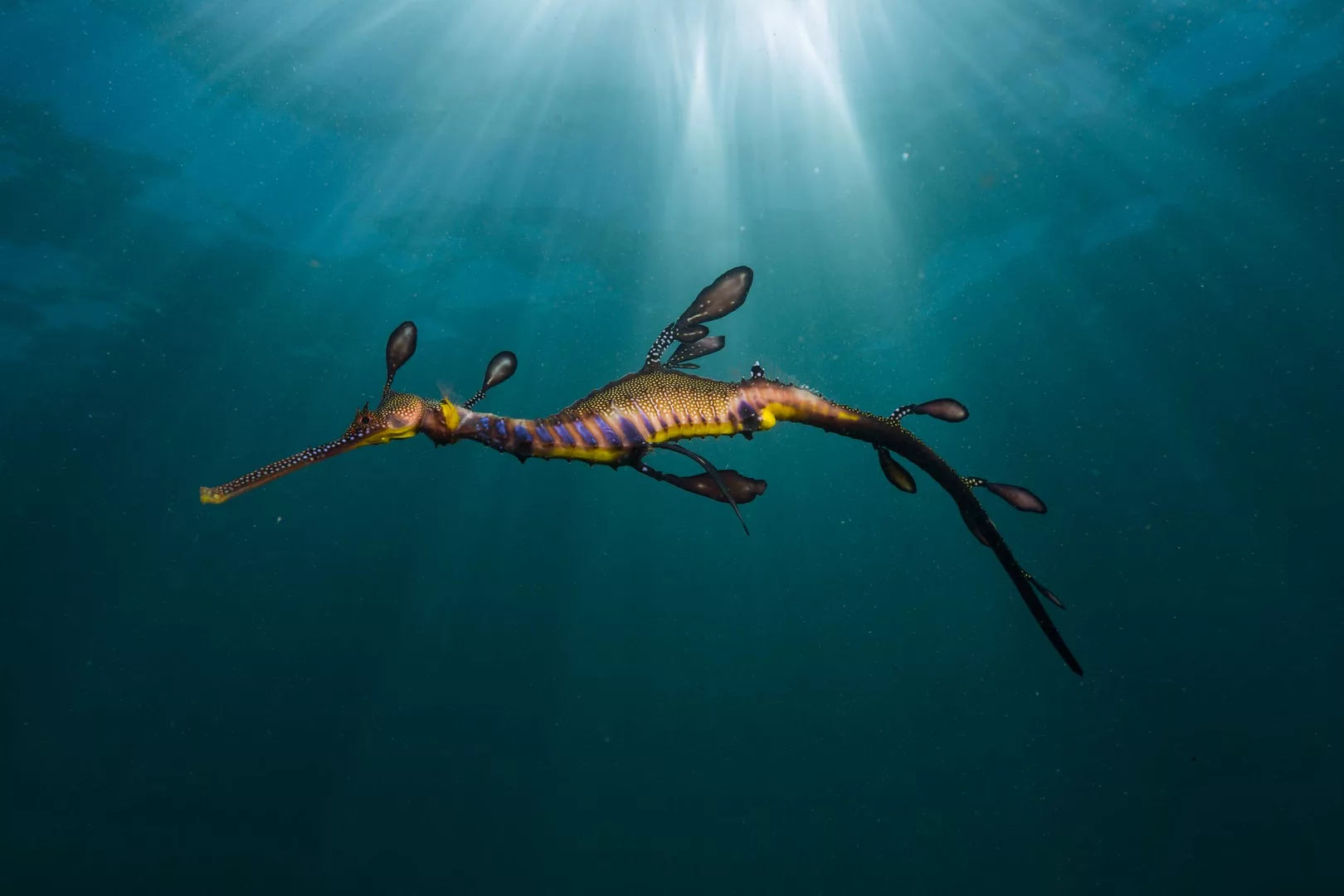
6. Flinders Pier (AUS)
Put simply, Flinders Pier is one of the weedy seadragon capitals of the world. This shore dive is the most famous of Victoria’s pier diving options and even featured on the BBC Blue Planet II documentary. The shallow dive ranges between two and six meters (six and 20 feet) and is filled with sea grass — the perfect hiding ground for the seadragons. Other possible marine life sightings include swell sharks, goatfish, smooth rays, pipefish, nudibranchs and weedfish. But be sure to keep your eyes peeled, as seals, penguins, eagle rays and giant cuttlefish can make an appearance.
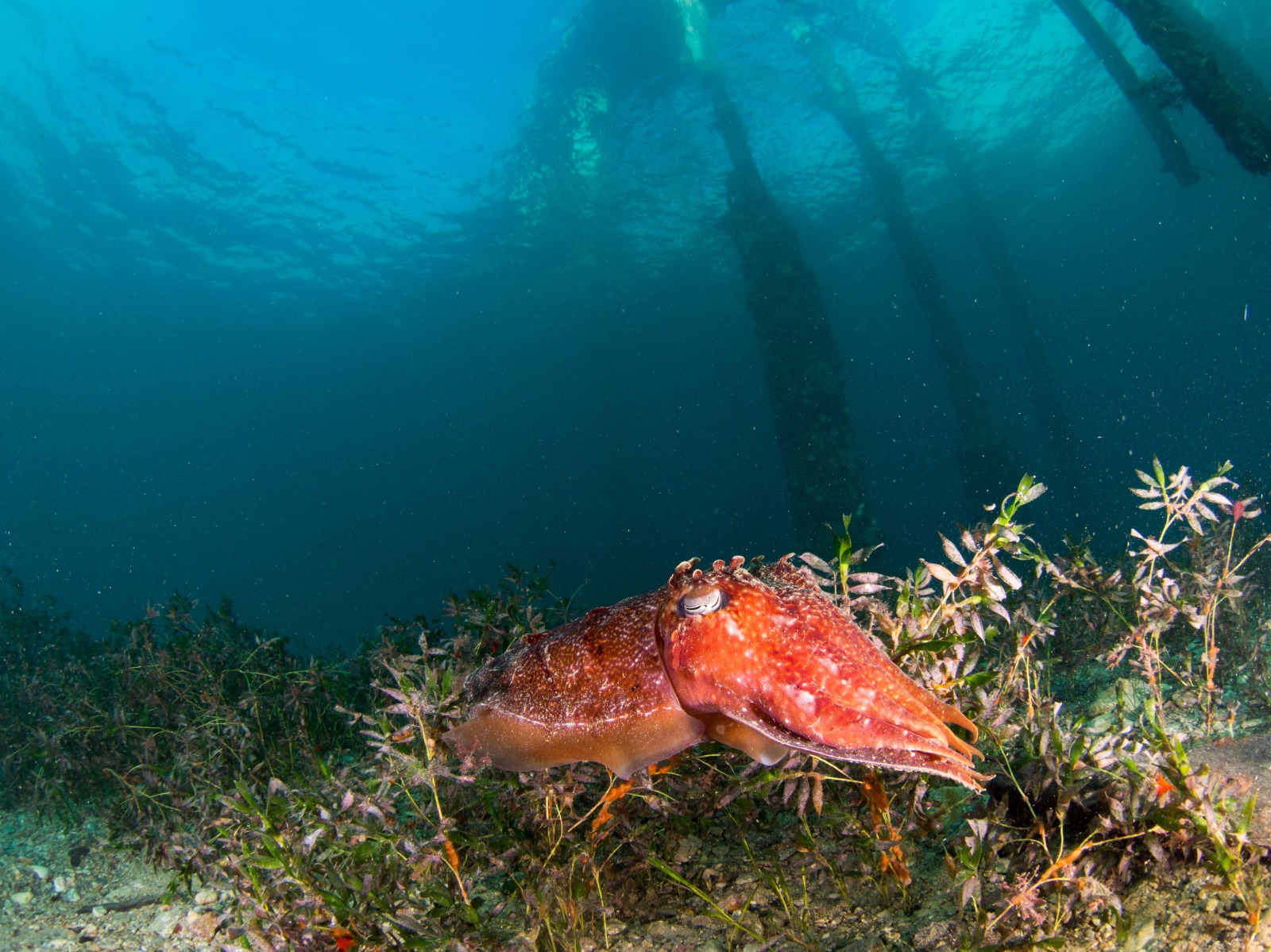
7. Rapid Bay Jetty (AUS)
If you’re interested in the best shore diving in Australia, Rapid Bay Jetty should be added to your itinerary. Not only is this jetty one of the most beautiful coastal underwater environments you’ll find, it’s also conveniently located 90 minutes from Adelaide, suitable for divers of all experience levels and can be dived throughout the year. But perhaps best of all, the site is a reliable place to find the other-worldly leafy seadragon. Any dive at Rapid Bay may also include sightings of leatherjackets, cowfish, pufferfish and bull rays, all on a background of sponges and soft corals.
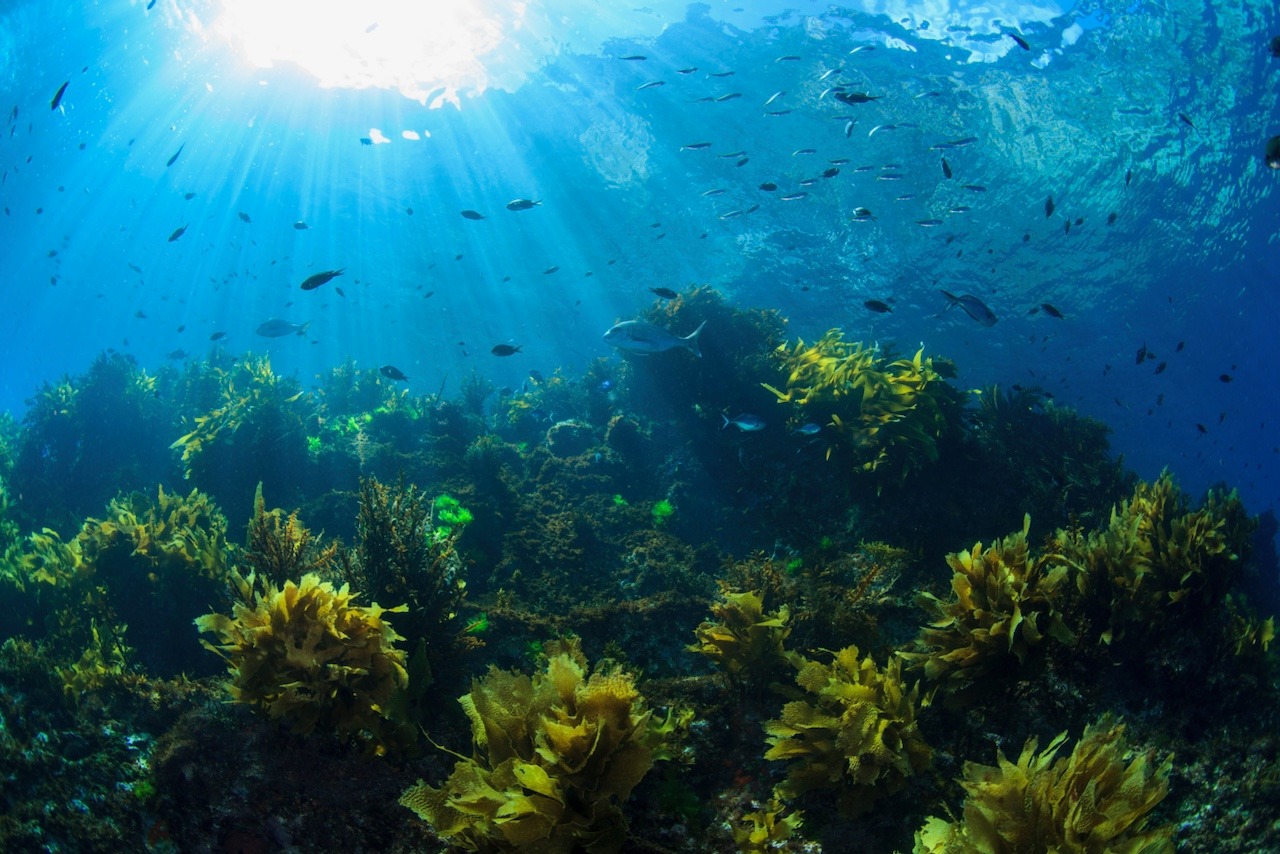
8. Poor Knights Islands Marine Reserve (NZ)
Jacques Cousteau rated the Poor Knights Islands as one of the best diving spots in the world – so you can be confident that the area is worth a visit. The mix of caves, arches, tunnels and drop-offs, all submerged in crystal-clear water, makes diving this group of islands a real treat. Beyond the geographical attractions, the Poor Knights Islands Marine Reserve hosts a wealth of marine life. This includes orcas, dolphins, bull rays and numerous fish species.
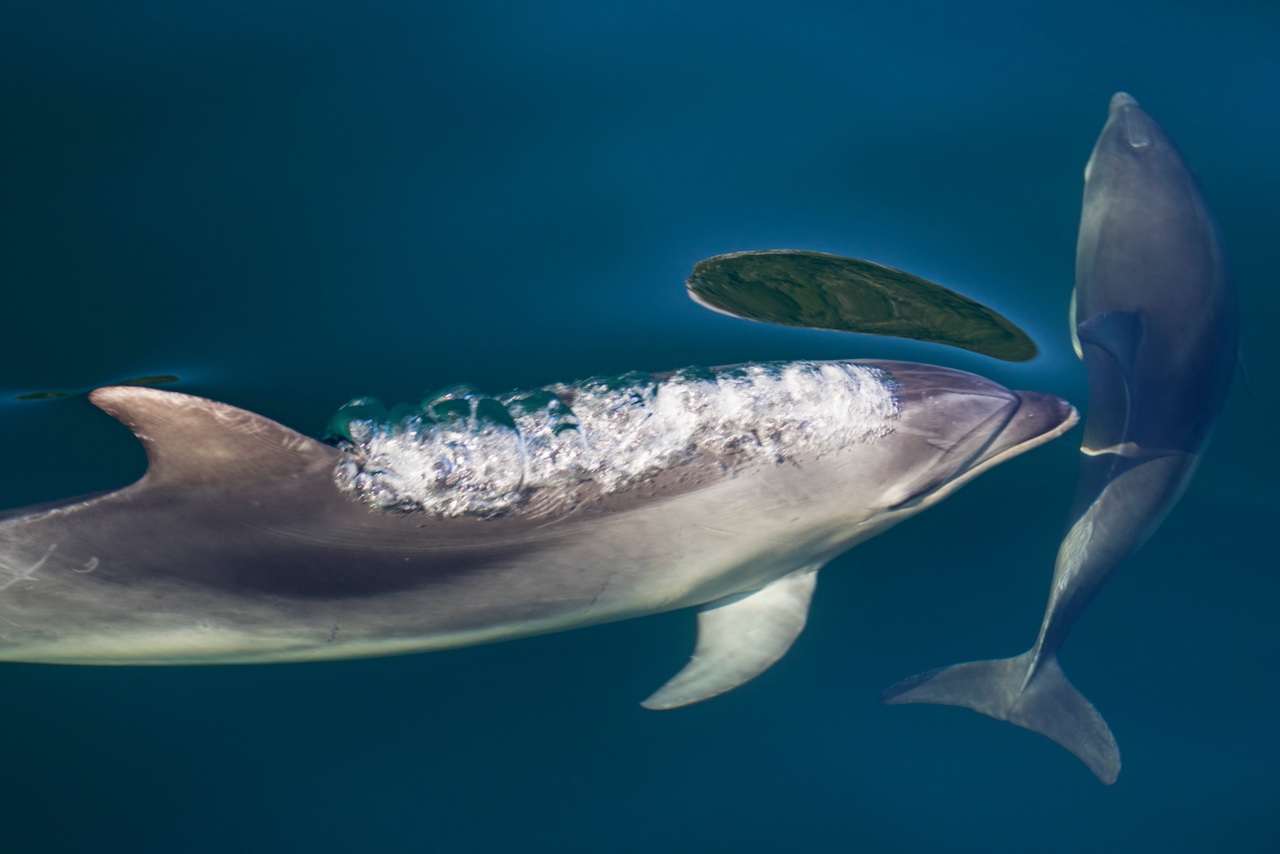
9. Milford Sound
If you love sites which are as beautiful above the surface as they are below, visit Milford Sound. Boat journeys out to dive sites allow you to take in the breathtaking views throughout the fiord, made up of sheer rock faces and waterfalls. Underwater, crevasses, extreme drop-offs and enormous boulders create a unique environment for divers to explore. Notable wildlife includes black (and red) coral, crayfish, dolphins, stingrays, octopuses, sharks and more than 100 fish species. Seals also appear from time to time, but more commonly spend their days sunbathing on rocks above the surface.
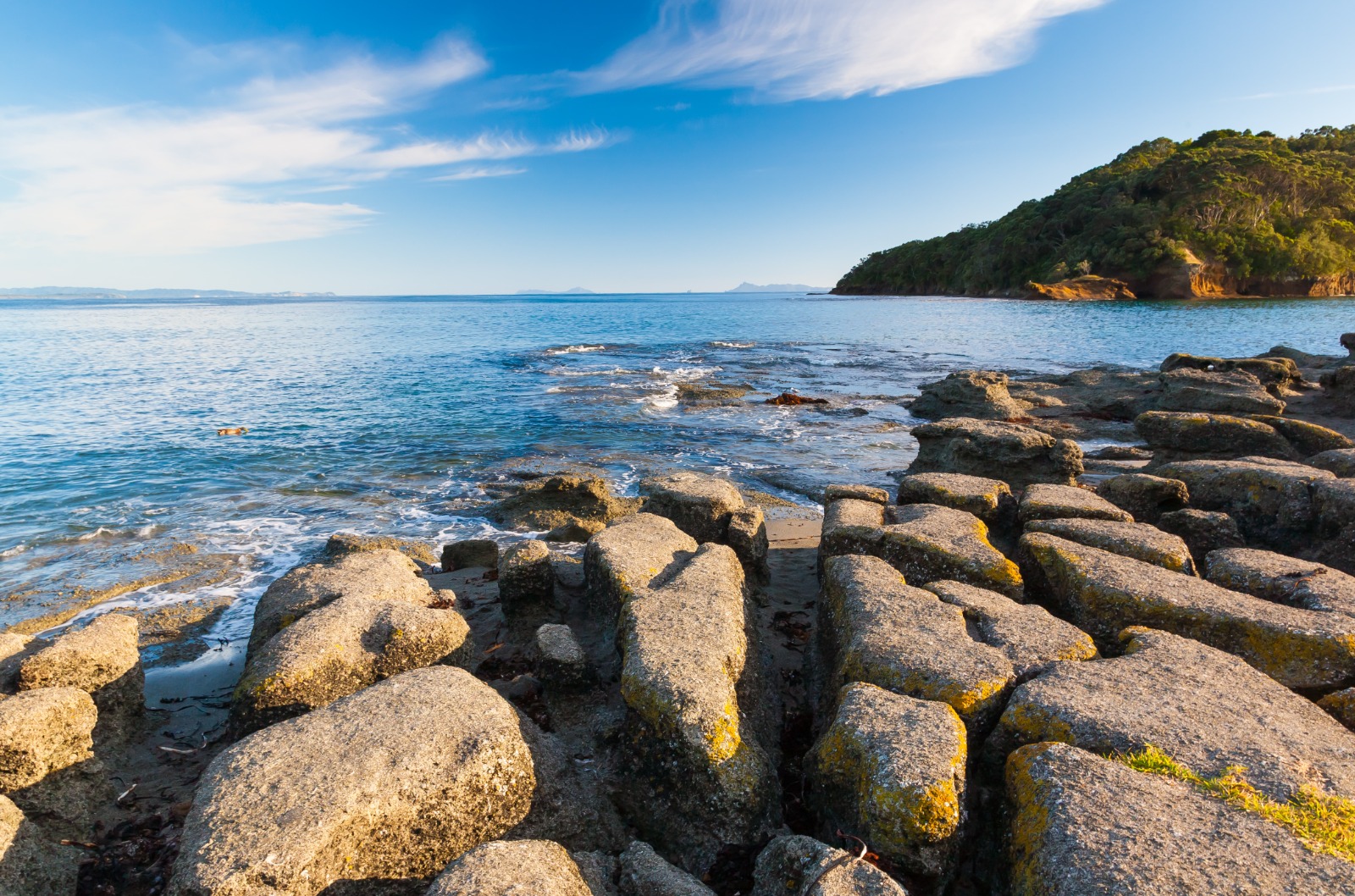
10. Goat Island
Head one hour north from Auckland, and you’ll find New Zealand’s first designated marine reserve – Cape Rodney-Okakari Point Marine Reserve. The waters off Goat Island (also known as Te Hāwere-a-Maki) feature a variety of environments and marine life. Throughout Goat Island’s accessible dive sites, you can find canyons, boulders, underwater cliffs, rocky shores, reefs and sandy bottoms. While anything from blue cod and snappers to crayfish and eagle rays could appear during your time underwater.
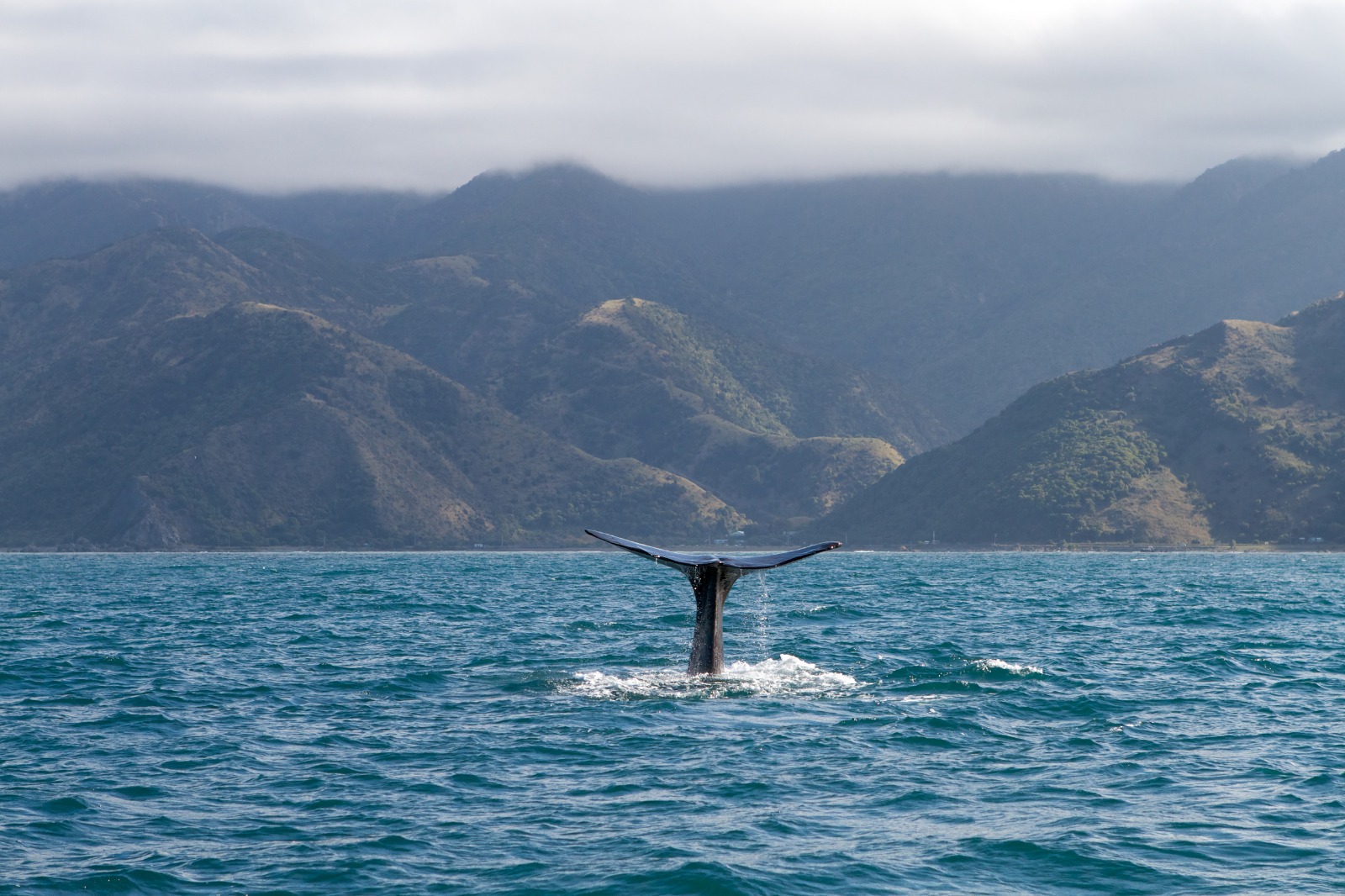
11. Kaikoura
Kaikoura is a small coastal town on the eastern coast of New Zealand’s South Island. Between June and August, this picturesque destination is one of the best places for seeing sperm whales in the world. These trips are also great opportunities for spotting other animals, such as dusky dolphins, New Zealand fur seals and albatross.
Underwater, Kaikoura’s proximity to the continental shelf and nearby mixing of currents result in nutrient-rich water that supports marine life in the area. Dive sites include limestone reefs, deep canyons and kelp forests. Each site offers the chance to meet everything from spotted jellyfish and nudibranchs to schooling baitfish and sand sharks.
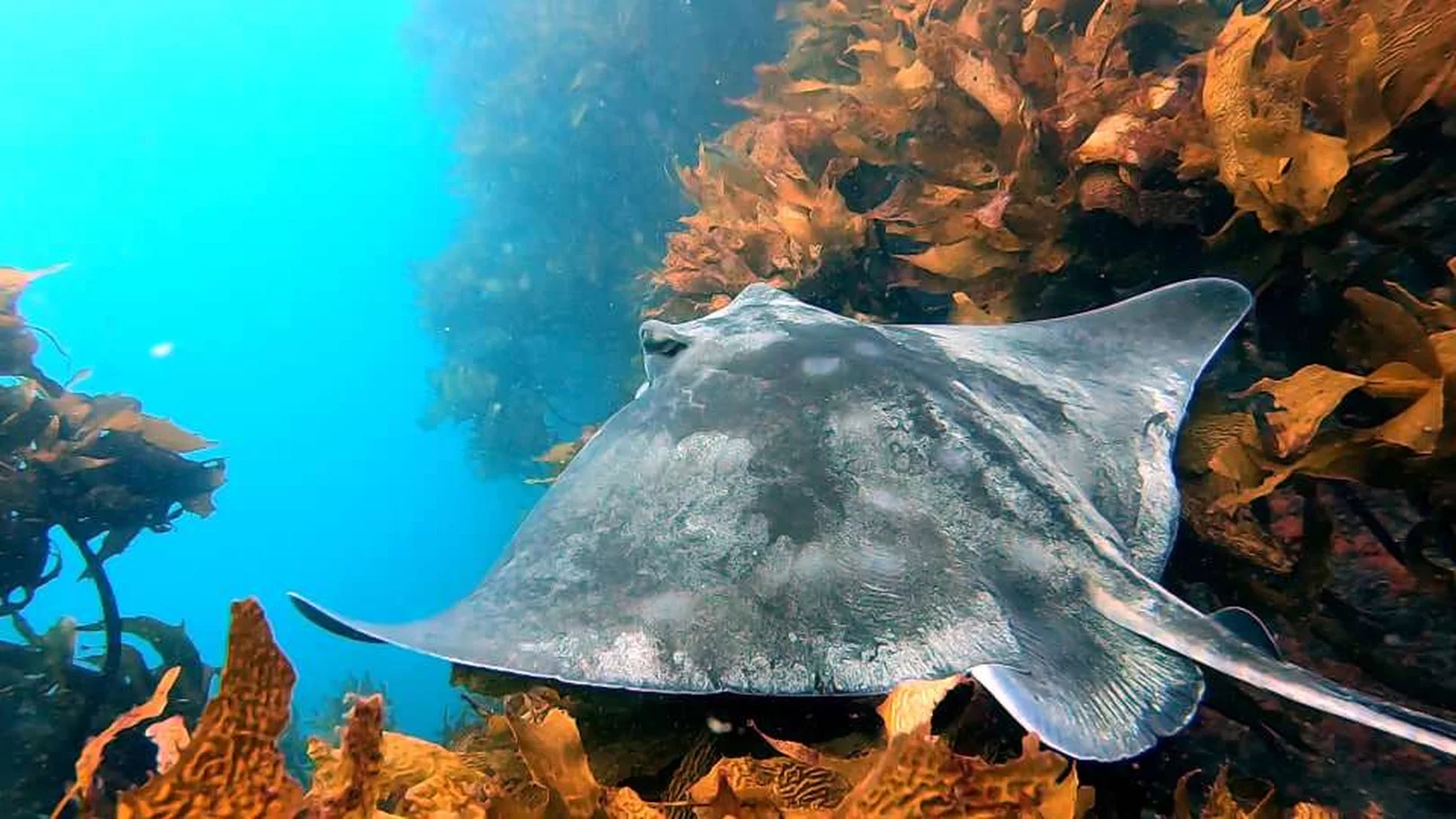
12. Bay of Islands
The Bay of Islands, located in the northern part of New Zealand’s North Island, is a diver’s paradise. With its stunning coastal scenery and rich marine biodiversity, the area offers unforgettable experiences above and below the surface.
Dives in the Bay of Islands may include sightings of a plethora of different marine life. From eagle rays to nudibranchs, and from schools of baitfish to sand sharks, every dive promises the chance of an exciting encounter.
The region’s proximity to the continental shelf and the confluence of ocean currents create nutrient-rich waters that sustain diverse ecosystems. Dive sites feature limestone reefs, deep canyons, and enchanting kelp forests, providing habitats for a wide array of species. There are also two splendid wrecks to explore here, namely the Canterbury and the Rainbow Warrior.
So whether you’re a novice or experienced diver, you’ll enjoy an immersive adventure that showcases the natural wonders of New Zealand’s marine environment.
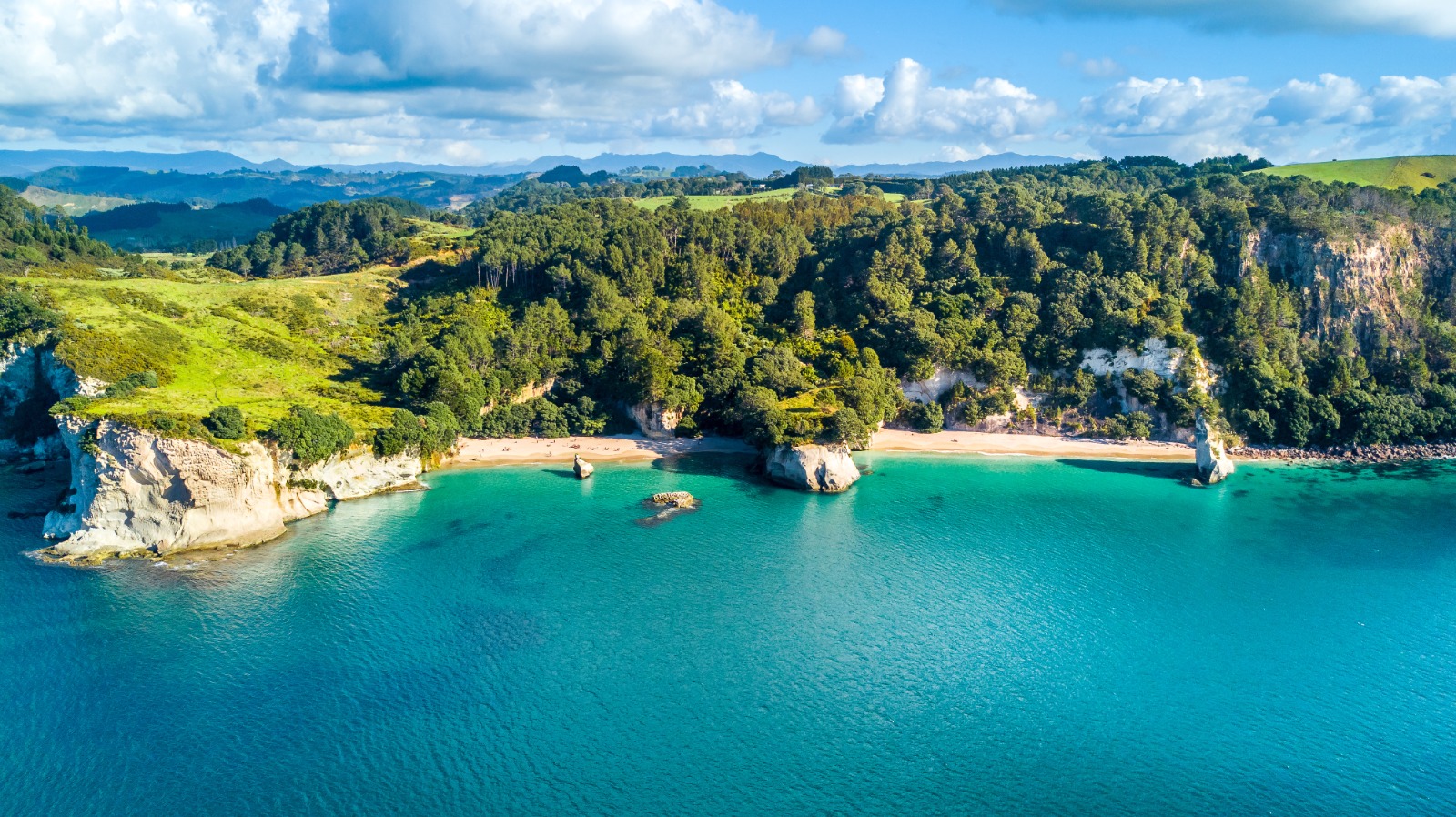
13. The Coromandel
The Coromandel, nestled on New Zealand’s North Island, offers captivating across diving all 12 months of the year. Its coastal waters are rich in marine life and offer stunning underwater landscapes. From limestone reefs to kelp forests, dive sites abound with diverse ecosystems thanks to the region’s nutrient-rich currents.
Here you can encounter graceful eagle rays, colorful nudibranchs, and bustling schools of baitfish. Dive deeper to uncover the secrets of canyons and encounter bigger life, like stingrays. With every dive beneath the surface, the Coromandel reveals a new spectacle of nature’s wonders, promising unforgettable dive adventures.
Ready to Dive Down Under?
If you’re feeling inspired to check out what Australia and New Zealand have to offer, it’s time to get in touch with the Scuba Travel Experts at PADI Travel. Contact them via phone, email or live chat for personalized help with picking out your perfect dive destination. Alternatively, explore more for yourself by clicking below.
